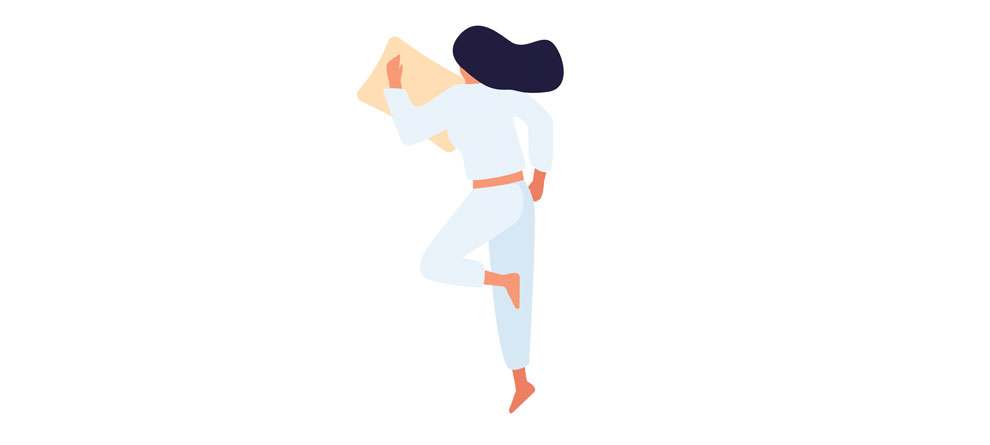For Better Sleep, Try This
Sleep deprivation is a common seizure trigger for many people, so it’s important to do everything in your power to get enough rest.
Go dark
This applies to your décor and your tech habits. Darkness triggers your body to release the snooze-inducing sleep hormone melatonin, which helps you drift off to sleep. Invest in blackout curtains to block sleep- interrupting headlights, street- lights, or sunshine. Dim the lights about an hour before bed, turn off the TV, and put your phone down too, as it emits a blue light that suppresses melatonin production.
Follow a schedule
If you’re struggling with sleep issues, don’t hit the pillow right after dinner, thinking you can “catch up” on missed zzz’s. In most cases, you’ll either lie awake waiting for your biological clock to agree that it’s bedtime, or fall asleep just to wake a few hours later. Instead, go to bed and wake up on a regular schedule—yes, even on weekends. According to sleep expert and clinical psychologist Michael Breus, sticking to a schedule helps your brain know when to be asleep, and when to wake up.
Cut out sneaky caffeine sources
You don’t need a sleep expert to tell you that your 3 p.m. coffee habit may be to blame for your 3 a.m. wake-up ritual. But according to the National Sleep Foundation, these foods and drinks may also be interrupting your nightly zzz’s:
Decaf coffee: Go easy on the “decaf” pot—even the low-octane stuff can pack 2 to 12 mg of caffeine per cup.
Tea: Herbal tea can promote sleep, but green and black teas can amp you up, with between 28 to 47 mg of caffeine per cup.
Chocolate: Dark chocolate contains the most caffeine—about 22 mg per ounce—but all kinds of chocolate can affect your sleep.
Headache relievers: While it’s true that the caffeine that’s in many common headache meds can help soothe a pounding head, it can also keep you up. Check the label! Premenstrual Syndrome remedies: Same goes for PMS meds. Caffeine is a diuretic, so it may help with PMS-related bloating. It won’t, however, help you get quality shut-eye.
Still can’t sleep?
Skip the sheep and try counting backward from 200 by 3s. It’s just boring enough to send you to sleep.
Take a walk.
If you had a rough night’s sleep, get outside for a walk after breakfast. Sunlight helps reset your circadian rhythms and may help your body associate darkness with sleep.
EpilepsyAdvocate Fall 2020.
Categories : From Our Magazine
Tags : Blog





